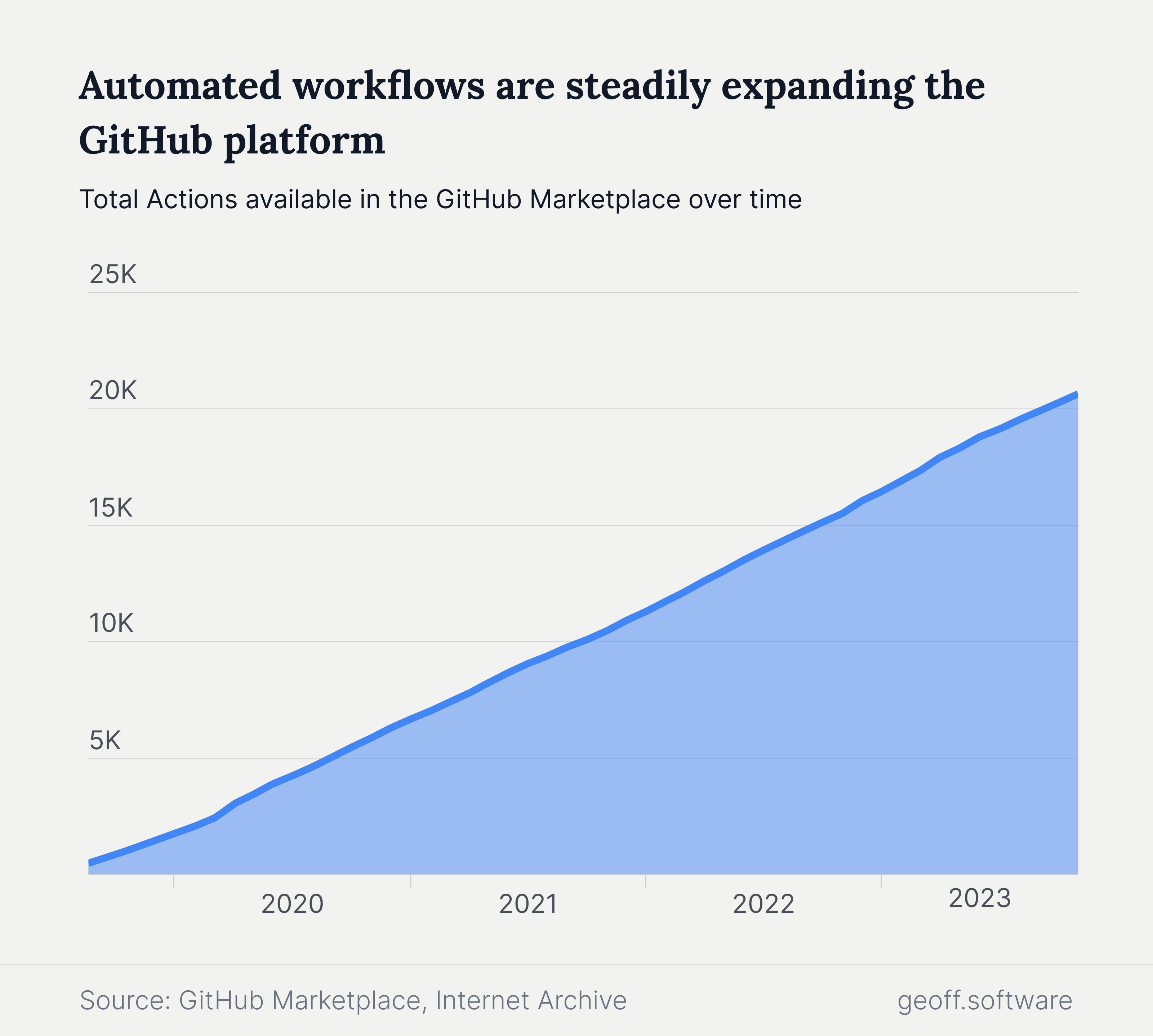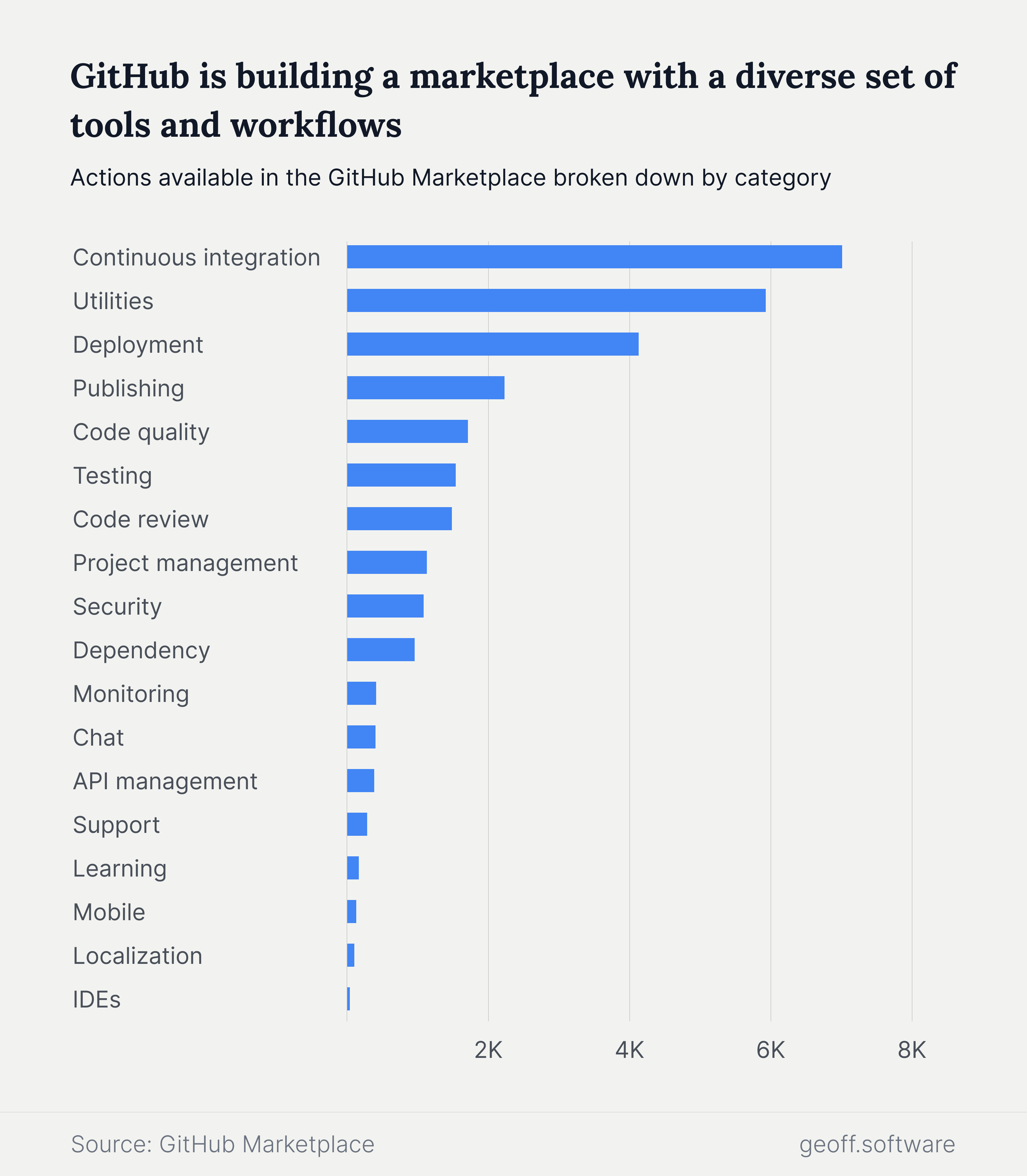Over the last few years GitHub has turned itself into the de facto engine of modern software development. Started as a simple way to store code and share it with other developers, it has become an essential tool — something of a Swiss Army knife — for managing how teams build and release software. It is used for everything from tracking tasks to scanning code for security issues.
Actions, a workflow automation tool built directly into the GitHub platform, is an example of the company's relentless expansion. Launched in late 2018, Actions gave developers a way to run scripts — small, modular snippets of code — to do repetitive tasks on their behalf. Take Labeler, an Action that labels new pull requests based on the paths of files being changed. It can help teams see what parts of the codebase will soon be updated without needing to do any manual tagging.

GitHub Actions work a bit like cooking recipes. Developers can mix and match workflows (their 'ingredients') they want to run, cobbling them together into into a single 'recipe' that automates a task. These are then triggered by specific events, like creating an issue or committing new code to a repository. There are some 21,000 Actions publicly available in the GitHub Marketplace for developers to install.
Like cooking recipes, Actions has opened the door to experimentation and exploration. Initially viewed as a deployment tool, it has found its way into dozens of other workflows. Actions can be used in code reviews, project management, and even security checks. "I see CI/CD as one narrow use case of actions," said Sam Lambert, GitHub's head of platform. "It’s so, so much more."

Even so, continuous integration still dominates as the primary use case for Actions. There are more than 7,000 Actions in the GitHub marketplace tagged as CI workflows. A further 4,000 are tagged for use in deployments. When you consider that these workflows are often remixed and combined, the expansiveness of the GitHub platform looms even larger.